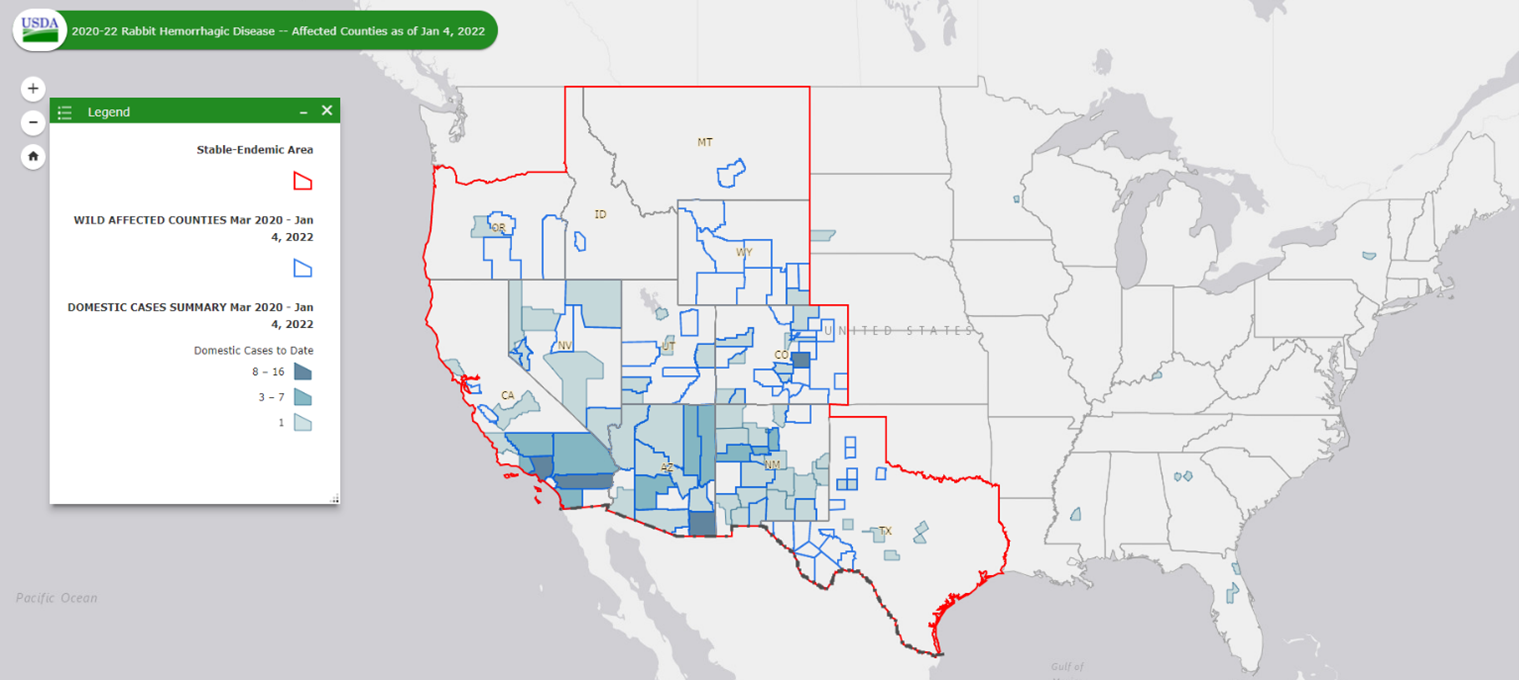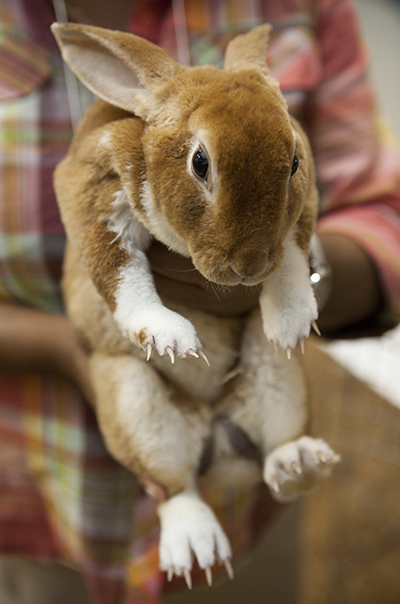Samantha Wisely, Wildlife Extension Specialist, Department of Wildlife Ecology and Conservation, University of Florida
The Florida Panhandle is home to many rabbit owners who raise rabbits for meat, breeding, exhibition at rabbit shows, or raise them as pets. Unfortunately, there is a deadly and highly contagious virus called Rabbit Hemorrhagic Disease Virus 2 (RHDV2) that has recently been found in the United States including Florida (Figure 1).

Figure 1. The distribution of Rabbit hemorrhagic disease virus 2 in the United States from March 2020 to January 2022. This dashboard from the USDA provides real-time updates on where the virus has been detected.
–

RHDV2 is a virus specific to rabbits that causes sudden death. However, there are vaccines available that can protect rabbits from infection from this viral disease. Credit: Tyler Jones, UF/IFAS
What is rabbit hemorrhagic disease virus 2?
RHDV2 is a virus specific to rabbits that does not infect people. In rabbits it causes sudden death. Rarely do animals survive, but those that do are lethargic and may have a bloody discharge from the nose. Animals that survive infection also shed the virus for up to 100 days after symptoms have disappeared and can thus infect other rabbits.
–
How does RHDV2 spread?
RHDV2 is a highly contagious virus that is shed from sick animals to other animals via mucus discharge, respiratory aerosol, blood, urine and feces. The virus is resistant to extreme temperatures, and can also be transmitted via contaminated food, water, bedding, people’s clothing, and infected carcasses.
–
Where is RHDV2 found?
First found in France in 2010, this virus has rapidly spread in domestic rabbits across Europe. It was first discovered in the United States in Ohio in 2018. Since then, it has infected domestic rabbits across the US, and has spilled over into wild rabbit and hare populations throughout the Western US. The virus was first detected in domestic rabbits in 2020 in Florida, but as of yet has not been found in wild rabbits in Florida.
–
How do I keep my rabbits safe?
- If you show rabbits at exhibitions, be sure to follow all of the biosafety precautions at the show.
- Disinfect all bedding, cages and equipment regularly with a 10% bleach solution.
- If you purchase rabbits, make sure they are not from an infected part of the country. Recently purchased animals should be kept isolated from the rest of your rabbits for 30 days. When caring for rabbits in isolation, use separate equipment and supplies. Permits are needed to transport rabbits across state lines.
- Never let your domestic rabbits mingle with wild rabbits, and never release domestic rabbits into the wild.
- If your rabbit dies suddenly, consult with your veterinarian about how to dispose of the carcass.
- Several vaccines against RHDV2 are now available. Check with your veterinarian for the best vaccine for you.
–
Additional Resources:
USDA RHDV2 Dashboard
–
USDA Rabbit Hemorrhagic Disease Factsheet
–
American Rabbit Breeder Association RHDV Page
–
Florida Department of Agriculture and Consumer Affairs RHDV update
–
Vaccine information from UF College of Vet Medicine
–
Vaccine information from the US manufacturer
- How Landowners Can Help Gopher Tortoise Conservation in the Florida Panhandle - August 29, 2025
- Armadillo Biology, Management, and Disease in the Panhandle - February 21, 2025
- Crop Damage from Deer in the Panhandle - August 15, 2024
